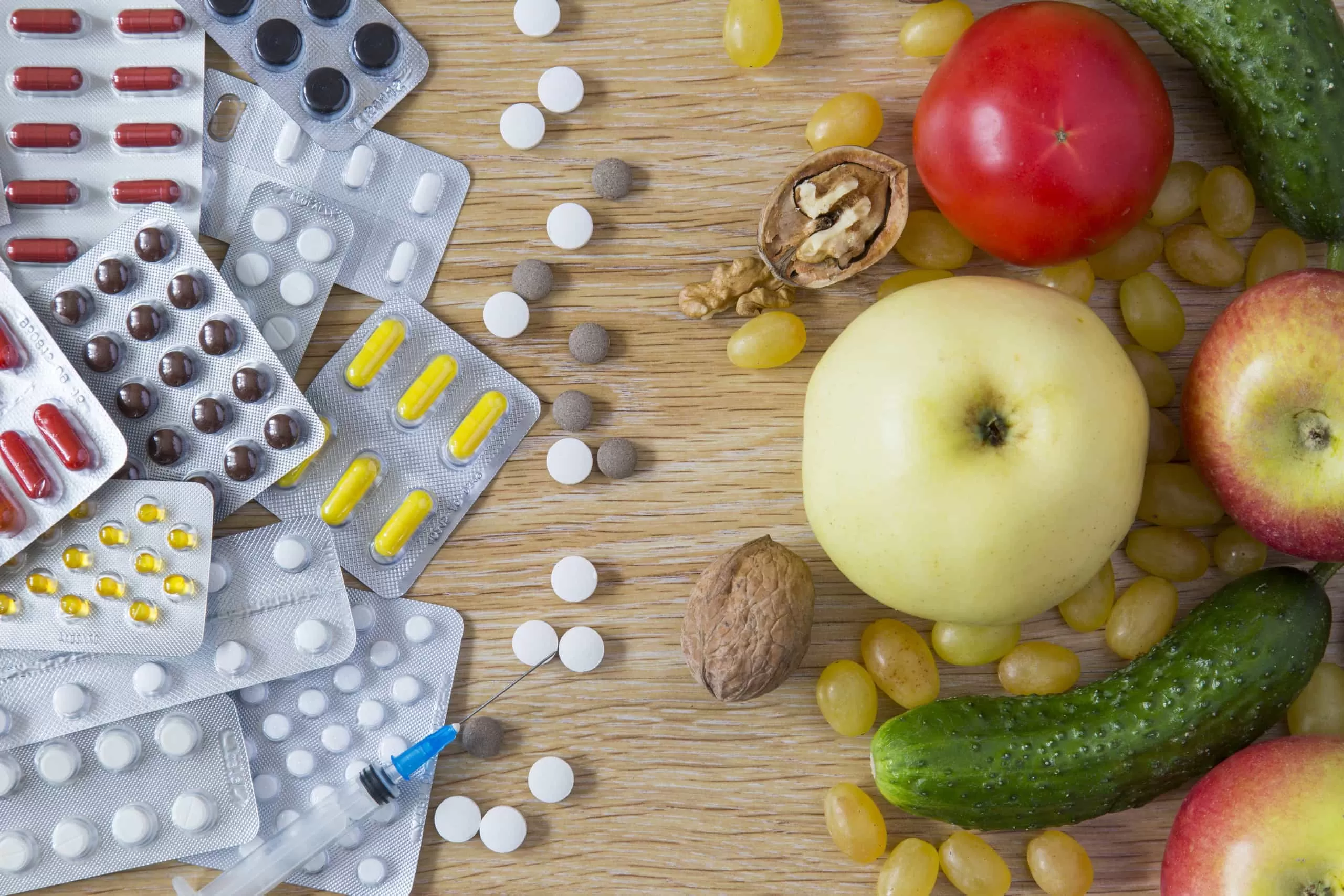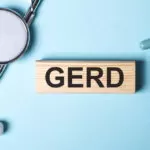Have you ever wondered about the mysterious connection between what you eat and the medications you take? It’s like a puzzle we’re always trying to solve. In this article, we’ll take a closer look at the fascinating world of Diet and Medicines interaction.
Have you ever thought about how your favorite pasta might impact your blood pressure medication? Or maybe you’ve pondered how your morning coffee could affect your antidepressants. Well, you’ve come to the right place!
So, what’s the deal with drug and diet interaction? How does it all work? Is it just a mix of old wives’ tales and medical terms?
No need to worry! We will make it simple and clear. Get ready for a journey through the captivating connection between food and drugs!
The Important exchange of diet and medicines interactions
Understanding how your diet and medicines you take can interact is vital for your health. It’s not just about what you eat; it’s also about when and how much you eat.
This complex relationship between food and pharmaceuticals can have significant consequences, both positive and negative.
Let’s dive into 5 following aspects:
1. Timing is important
When it comes to diet and medicines interaction, timing is key. Just like in life, timing matters to ensure the effectiveness and safety of your medications. Imagine taking a pill meant to lower your blood sugar right before a carb-loaded meal – it’s like trying to put out a fire with gasoline!
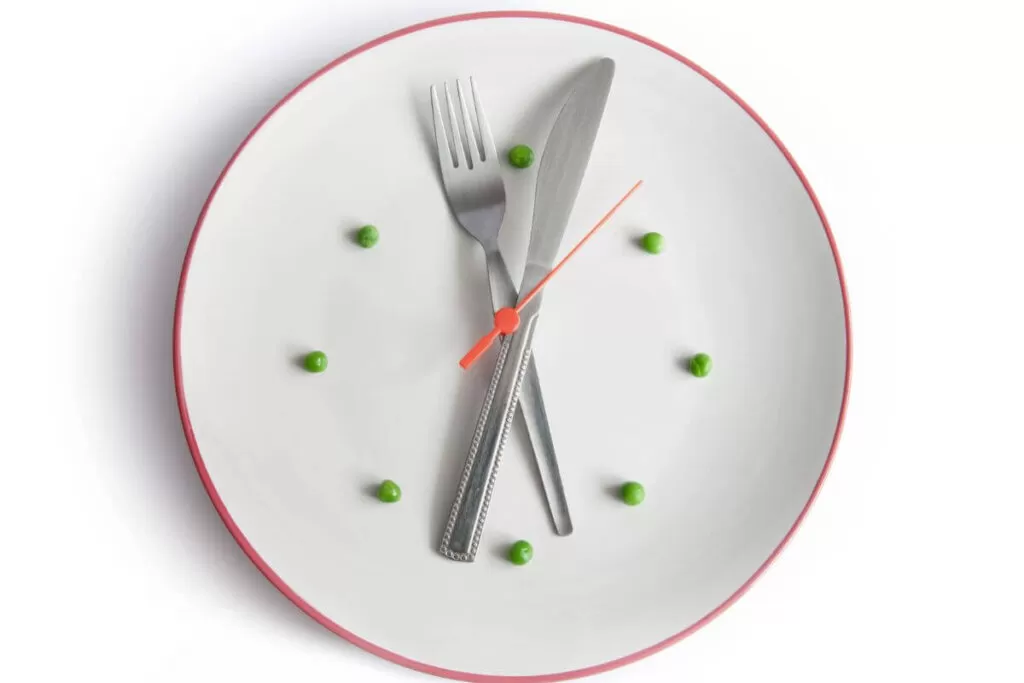
But, how does timing matter?
Well, some medications work better when taken with or without food, and timing can affect how your body absorbs and processes them.
For instance, antibiotics often work best on an empty stomach, while others, like certain pain relievers, work better with a meal.
The right timing can also help reduce potential side effects. Taking your diuretic medication before bedtime can help you avoid those midnight bathroom trips.
2. Diet and Medications Interactions
Now, let’s discuss the direct interaction between your diet and medicines. Just like some people click instantly, some foods and medications form a strong bond, while others don’t mix well.
The Unusual Pairings: Certain foods can interact with medications in unexpected ways. It’s like combining ice cream with pickles – surprising and often not very pleasant. Here are some examples:
Grapefruit and Medications: Grapefruit may seem harmless, but it contains compounds that can interfere with the enzymes responsible for breaking down drugs. This can lead to increased drug levels in your bloodstream, potentially causing overdose symptoms or severe side effects.
Dairy and Antibiotics: Milk and calcium-rich foods can hinder the absorption of certain antibiotics, reducing their effectiveness. Taking tetracycline with a glass of milk? Not a wise choice!
Vitamin K and Blood Thinners: If you’re on blood thinners like warfarin, be cautious with your leafy greens. Vitamin K, found in abundance in foods like spinach and kale, can counteract the effects of these medications.
Alcohol and Painkillers: Combining alcohol with certain pain relievers can lead to trouble. It can increase the risk of liver damage and other effects.
3. The Role of Macronutrients in diet and medicines interaction
Macronutrients, those fundamental components of your diet – carbohydrates, proteins, and fats, can also impact how your body processes medications. It’s like choosing the right ingredients for a recipe; using the wrong ones can ruin the dish.
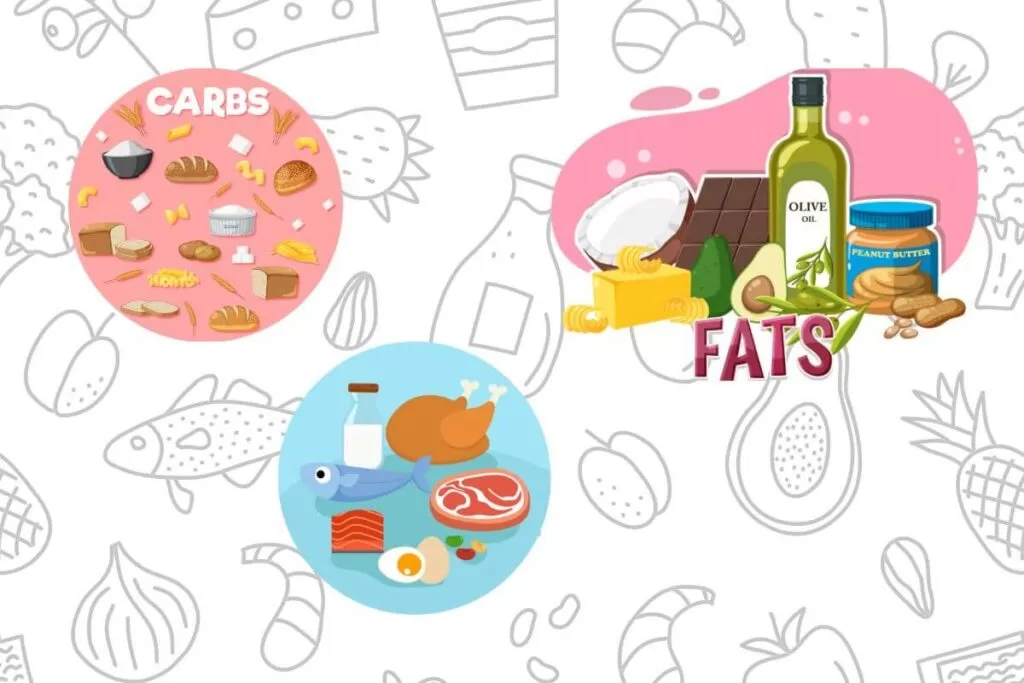
Carbohydrates
Carbs, the energy-providing nutrients, can influence how your body absorbs and metabolizes drugs. Some medications may work better when taken with a meal that includes carbohydrates.
Others, especially those used to manage blood sugar, may need to be taken to be most effective before you eat.
Proteins
Proteins, the building blocks of your body, can also have an impact. High-protein meals can affect the absorption of certain drugs.
For example, tetracycline antibiotics should be taken on an empty stomach because proteins can interfere with their absorption.
Fats
Fats can enhance the absorption of fat-soluble vitamins and some medications.
So, taking your vitamin D supplement with a meal containing healthy fats like avocados or nuts can help your body absorb it more effectively.
4. Dietary Supplements and Drug Interactions
When it comes to supplements, it’s a bit like the Wild West of the nutrition world.
They aren’t as strictly regulated as pharmaceutical drugs, which means you have to be extra cautious when taking them alongside your medications.
A Word of Caution
Dietary supplements can interact with medications in various ways. For instance:
St. John’s Wort and Antidepressants: St. John’s Wort, a popular herbal supplement for depression, can interfere with the effectiveness of many antidepressant medications. The result? Your mood might not improve as expected.
Vitamin K and Blood Thinners: Supplements containing high levels of vitamin K can counteract the effects of blood thinners, just like vitamin K-rich foods.
Iron Supplements and Antibiotics: If you’re prescribed antibiotics, taking iron supplements at the same time can reduce the antibiotics’ absorption. It’s a bit like trying to read a book with missing pages – the story won’t make sense.
5. person to person changeability
One of the most intriguing aspects of drug and diet interaction is that it can vary significantly from person to person.
Just as everyone has their unique characterisitcs, their body’s response to different foods and medications can also vary.
Your Genetic Arrangement
Our DNA serves as a blueprint that influences how our body processes medications. Some people have genetic variations that affect their ability to metabolize certain drugs.
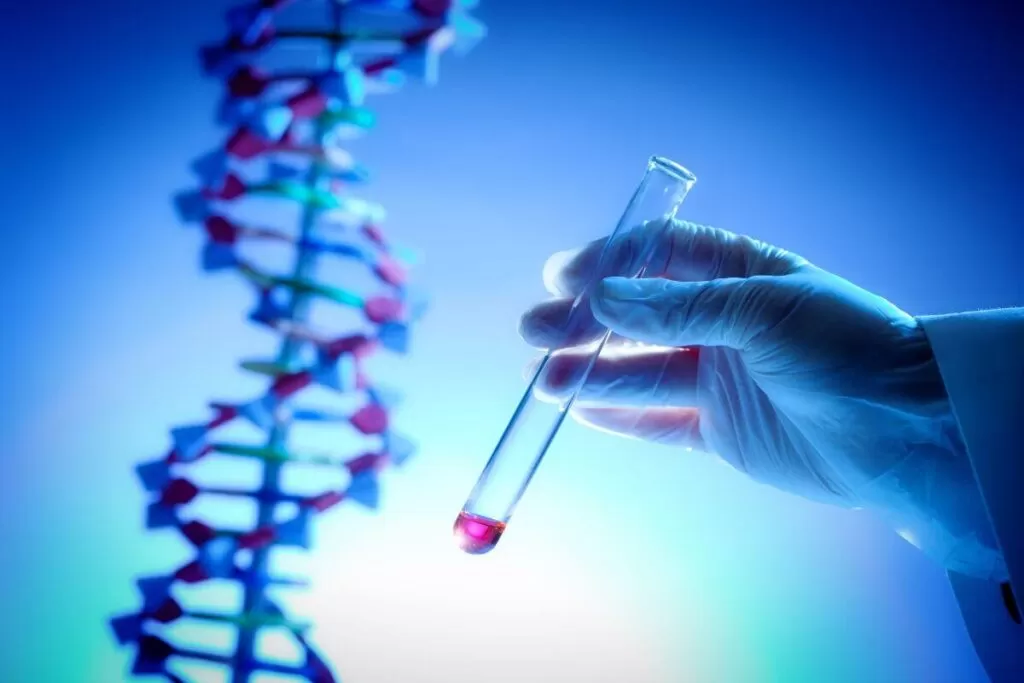
This can lead to differences in how food interacts with medications from person to person.
Age Matters
Age is another factor that can influence how your body interacts with medications. The way a child’s body processes drugs is different from that of an adult or an elderly person.
So, the impact of diet on medication can vary across different age groups.
Health Conditions
If you have underlying health conditions, like diabetes or kidney disease, your diet can play a more significant role in drug interactions.
These conditions can alter how your body absorbs, metabolizes, and excretes medications.
FAQs with diet and medicines interaction
Now that we’ve navigated the captivating terrain of drug and diet interaction, let’s address some common questions that often baffle individuals:
Q1. Can I eat anything I want while taking medications?
A1. While some medications are less sensitive to your diet, others can be greatly affected by what you eat. It’s essential to consult your healthcare provider or pharmacist for specific dietary guidelines related to your medications.
Q2. How can I avoid harmful drug and diet interactions?
A2. The best way to avoid harmful interactions is to communicate openly with your healthcare provider. They can guide what to eat and when to take your medications. Also, read the medication labels and instructions for any dietary restrictions.
Q3. Are there any specific foods I should avoid with all medications?
A3. While there are no universal restrictions, grapefruit is a notorious culprit. It can interact with a most range of medicines

